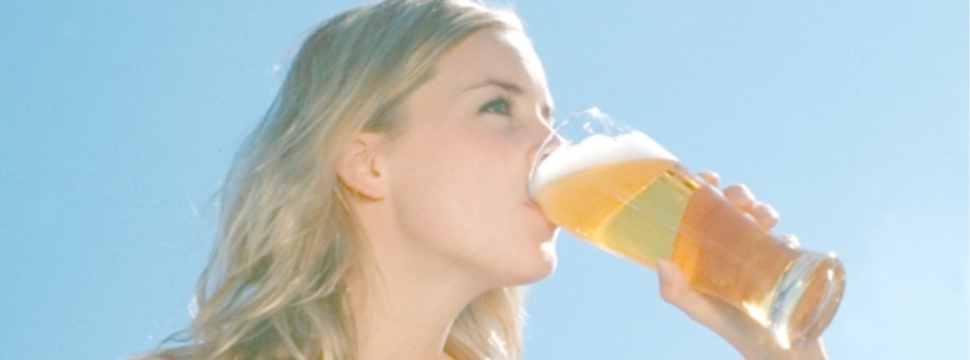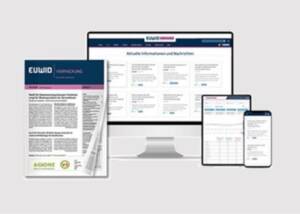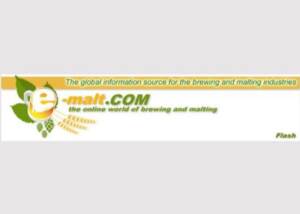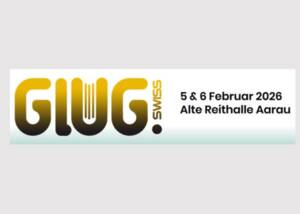Non-alcoholic beers increasingly popular in Germany
News General news
Sales development defies the crisis - brand diversity continues to grow

Non-alcoholic beers are becoming increasingly popular in Germany - and the variety of brands has also been growing steadily for years. According to the German Brewers Association (DBB), no other variety has grown as strongly as non-alcoholic beers and non-alcoholic beer mixes over the past ten years. While around 430 million liters of non-alcoholic were produced in 2010, according to industry figures, Germany's breweries already sold more than 660 million liters of non-alcoholic beer and malt beverages in 2020, despite the Corona crisis and a four-month lockdown of the restaurant trade. This represents an increase in market share of 53 percent within this decade. Looking at the German beer market, the market share of non-alcoholic in the food trade was almost seven percent in 2020, according to market research. According to DBB forecasts, the dynamic growth will continue in the coming years and the ten percent mark will be exceeded sooner than expected.
A look at the latest market figures shows that non-alcoholic beers are doing better than all alcoholic varieties in the Corona crisis. Retail demand for non-alcoholic beer mix drinks such as Radler rose particularly sharply last year - with sales up 16.5 percent on 2019, according to market research firm Nielsen. Non-alcoholic pilsner and non-alcoholic draught beer increased by 6.2 percent. The 2020 restaurant trend cannot be assessed because of the lockdowns.
Consumers go for lots of flavor, few calories and natural raw materials
A consumer survey for the Brewers Association (INSA, January 2021, 2040 respondents) confirms the trend: alcohol-free Radler is ahead in popularity at 31 percent, closely followed by alcohol-free wheat beer (30%). One in four (25%) prefers non-alcoholic pilsner. According to the survey, almost one in two Germans (46%) now drinks non-alcoholic beers - and the trend is rising. What consumers particularly appreciate about alcohol-free beers is their good taste, low calorie count and the use of exclusively natural raw materials, the survey found.
Alcohol-free beers are also brewed according to the German Purity Law - from just four ingredients: Water, malt, hops and yeast. The Purity Law is considered the oldest consumer protection law in the world that is still valid today. It was promulgated 505 years ago - on April 23, 1516 - by the Bavarian Duke Wilhelm IV and his brother Duke Ludwig X in Ingolstadt.
Growing diversity: 700 non-alcoholic beer brands in Germany
According to the Brewers Association, there are now almost 7,000 beer brands in Germany - more than 700 of which are non-alcoholic beers and beer-based mixed drinks. In addition to classic varieties such as Pils, wheat beer or Radler, more and more regional specialties such as Kölsch and Alt are coming onto the market as non-alcoholic variants. The popular Helle as well as craft varieties such as IPA (India Pale Ale) have also long been available without alcohol.
"A small ray of hope in times of crisis"
"The Corona pandemic is leaving a clear mark on all 1,500 breweries in Germany. The extent of the economic damage is growing from week to week. The positive development in non-alcoholic beers is a small ray of hope, even if increases in trade in this still manageable segment can of course never compensate for the complete collapse of the restaurant business," says Holger Eichele, general manager of the DBB. Germany's brewers lead the field in alcohol-free innovations by international standards and are determined to further expand this market position, Eichele said: "Almost 50 years ago, alcohol-free beer was invented as 'motorist's beer'. Alcohol-free beers have long since become a lifestyle drink for people who love beer and want to eat healthily and consciously. Because many non-alcoholic beers are mineral and isotonic, they are also becoming increasingly popular with athletes."










